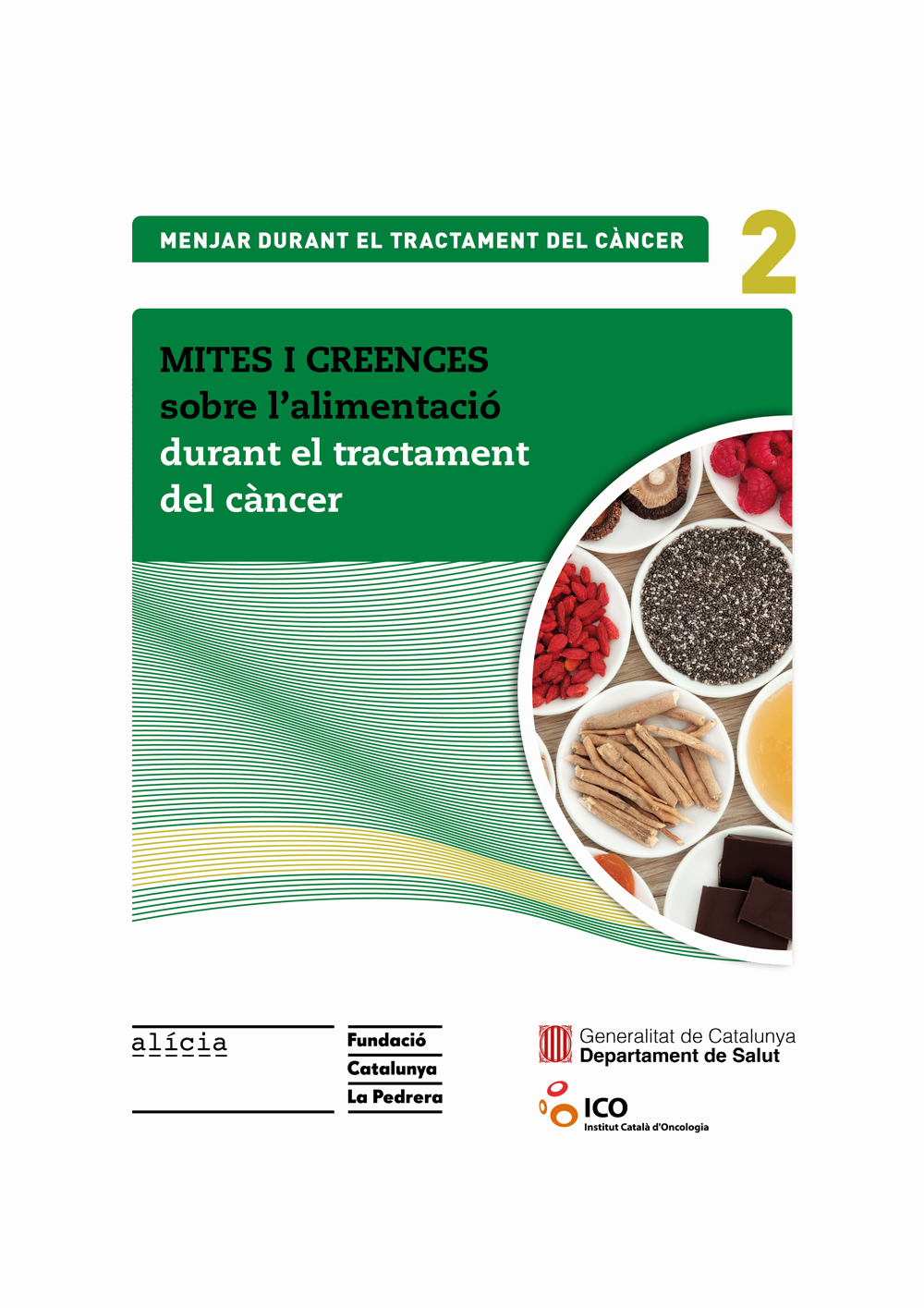After a cancer diagnosis, it is common to search for information on what foods can help fight the disease. Products, cooking methods, utensils, diets… that could be harmful or that could have a miraculous effect on the body. All this information from websites, books, magazines and even advice from friends or relatives who have heard or read about the subject, can generate a feeling of information overload and with it a feeling of anxiety, not knowing what is true and what is not. In some cases, people end up eliminating from their diet foods that are essential for dealing with the disease or, on the contrary, adding foods, herbs or supplements that may be harmful or that simply increase the cost of the diet without any real evidence of their effectiveness.
This section collects and analyses some of the most common myths and legends related to food and cancer treatment, explaining whether they are well-founded or have no firm scientific basis to support them. For the elaboration of this section a bibliographic review of scientific studies published in recent years, the declarations of existing official food safety bodies, both national and international, such as the ACSA (Catalan Food Safety Agency), the AECOSAN (Spanish Agency for Consumer Affairs, Food Safety and Nutrition of the Spanish Ministry of Health); the EFSA (European Food Safety Agency); the FDA (United States Food and Drug Administration), and the WHO (World Health Organisation) have been taken into account. The recommendations of different institutes, societies and associations specialised in research and dissemination of information on cancer prevention and treatment have also been considered for this section.
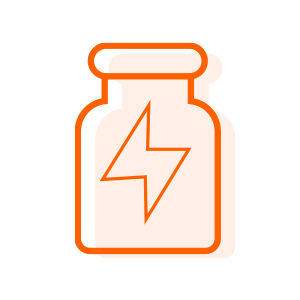
Is it necessary to include dietary supplements in the diet?
It is not recommended to consume any type of dietary supplements without them being prescribed by your medical team or your designated dietitian/nutritionist.
MYTH
The existence of a wide variety of products with dietary purposes often leads to confusion between dietary supplements containing vitamins, minerals, antioxidants, and other bioactive compounds that can be purchased without a prescription at health food stores, pharmacies…and nutritional supplementation with medical nutrition products. The belief in the beneficial effects of the former (antioxidant supplements or those based on other compounds) is highly popular among many individuals undergoing cancer treatment due to the numerous messages circulating about their 'miraculous' properties, despite lacking scientific evidence to support them.
RECOMMENDATION
Adequate nutritional status is essential to cope with the disease and its treatments. In the market, there are many supplements with varying compositions and qualities some harmless and safe, but others not. Therefore, incorporating additional vitamins, minerals, antioxidants, or other bioactive compounds through the consumption of dietary supplements can cause serious and harmful side effects, as they may interact or interfere with ongoing treatments, reducing their effectiveness or causing unexpected severe toxicities. Hence, it is essential to always consult with the medical team before incorporating such a supplement into the diet. On the other hand, when nutritional needs cannot be met through regular food intake, the oncologist may prescribe nutritional supplementation with products designed for special dietary needs. These products are specially formulated and developed for the nutritional treatment of patients under medical supervision, thus forming an integral part of the treatment and should be completely distinguished from the aforementioned supplements.
EVIDENCE
Despite the growing research on the use of dietary supplements during cancer treatment, the current evidence is insufficient. There is currently no scientific evidence supporting the use of antioxidants, additional vitamins, or minerals to help treat or cure cancer. Some cancer treatments may include specific doses of certain vitamins or minerals, but your medical team will make these additional prescriptions. On the other hand, nutritional supplements are products for special medical purposes supported by scientific evidence regarding their effectiveness, safety, and efficiency in addressing the nutritional needs of individuals requiring them due to their nutritional status. Nutritional supplementation can be recommended as a complement to food intake or as a complete liquid diet orally. A prior nutritional assessment should be conducted to select the most suitable product. There are various types of nutritional supplements to meet different needs, available in different flavors and textures. These supplements may be funded by the National Health System based on regulated criteria and can only be obtained from pharmacies or through hospital channels.
Scientific articles
- Alsharairi NA. The Effects of Dietary Supplements on Asthma and Lung Cancer Risk in Smokers and Non-Smokers: A Review of the Literature. Nutrients. 2019; 11(4): 725.
- Frenkel M, Abrams DI, Ladas EJ, Deng G, Hardy M, Capodice JL, et al. Integrating dietary supplements into cancer care. Integr Cancer Ther. 2013; 12(5): 369-84.
- Frenkel M, Sierpina V. The use of dietary supplements in oncology. Curr Oncol Rep. 2014; 16(11): 411.
- Huebner J, Marienfeld S, Abbenhardt C, Ulrich C, Muenstedt K, Micke O, et al. Counseling Patients on Cancer Diets: A Review of the Literature and Recommendations for Clinical Practice. Anticancer Res. 2014; 34(1): 39-48.
- Pawlowska E, Szczepanska J, Blasiak J. Pro- and Antioxidant Effects of Vitamin C in Cancer in correspondence to Its Dietary and Pharmacological Concentrations. Oxid Med Cell Longev. 2019; 2019:7286737.
Websites
- Cancer [internet]. EUA: American Cancer Society; 2014 [cited March 2015]. Choosing and Using Dietary Supplements Wisely. Available from: http://www.cancer.org/treatment/treatmentsandsideeffects/complementaryandalternativemedicine/dietarysupplements/dietary-supplements-choosing-safely
- Cancer [internet]. EUA: American Cancer Society; 2014 [cited March 2015]. Are Dietary Supplement Safe? Available from: http://www.cancer.org/treatment/treatmentsandsideeffects/complementaryandalternativemedicine/dietarysupplements/dietary-supplements-fda-regulations
- Health effects of vitamin and mineral supplements. [cited 2023 Mar 31]; Available from: http://www.bmj.com/
- Mangione CM, Barry MJ, Nicholson WK, Cabana M, Chelmow D, Coker TR, et al. Vitamin, Mineral, and Multivitamin Supplementation to Prevent Cardiovascular Disease and Cancer: US Preventive Services Task Force Recommendation Statement. JAMA. 2022 Jun 21;327(23):2326–33.
Books
- Bolch A, Cassileth B, Holmes M, Thomson C. Eating well, staying well during and after cancer. 1.ª ed. EUA: American Cancer Society; 2004.
Internet monographs
- American Cancer Society. Nutrición para la persona con cáncer. EUA: American Cancer Society; 2014 [cited March 2015]. Available from: http://www.cancer.org/acs/groups/cid/documents/webcontent/002904-pdf.pdf
Last updated: July 2023
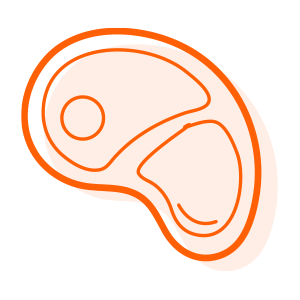
Can I eat red meat?
You do not have to eliminate red meat from your diet during cancer treatment, but it is recommended to consume moderately and limit the consumption of processed meat. However, its consumption is entirely optional.
MYTH
Meat is a very misconceived product. It has a bad reputation because high red meat consumption is associated with an increased risk of developing some types of cancer, especially colorectal cancer. This information has reached the false conclusion that any consumption of red meat during cancer treatment is harmful.
RECOMMENDATION
During treatment and subsequent recovery, eating red meat is not harmful, as protein intake is essential for tissue repair and regeneration. The recommended consumption of meat is three or four servings a week (100-125 g/serving), of which two can be red meat, prioritising the leanest parts, removing visible fat and limiting its intake when the meat is processed.
EVIDENCE
The working group from the International Agency for Research on Cancer (IARC) concluded that there is an association between high red and processed meat consumption and the development of colorectal cancer, classifying processed meats as a carcinogen and red meat as a probable carcinogen. As a result, the World Cancer Research Fund International (WCRF) recommended limiting red meat consumption to less than 500g per week and consuming as little processed meat as possible (WCRF, 2018). Nevertheless, there is no consensus linking moderate consumption with the risk of cancer development or interaction during treatment. Meat, and red meat, in particular, is an excellent high-quality source of protein, zinc, iron, B vitamins and vitamin K.
Scientific articles
- Alexander DD, Morimoto LM, Mink PJ, Cushing CA. A review and meta-analysis of red and processed meat consumption and breast cancer. Nutr Res Rev. 2010; 23 (2): 349-65.Abid Z, Cross AJ, Sinha R. Meat, dairy, and cancer,,. The American Journal of Clinical Nutrition. 2014;100.
- Chiang VS, Quek SY. The relationship of red meat with cancer: effects of thermal processing and related physiological mechanisms. Crit Rev Food Sci Nutr. 2015; 15:0.
- De Cicco P, Catani MV, Gasperi V, Sibilano M, Quaglietta M, Savini I. Nutrition and breast cancer: A literature review on prevention, treatment and recurrence. Nutrients. 2019;11(7):1514.
- Farvid MS, Eunyoung C, Chen WY, Eliassen H, Willett WC. Dietary protein sources in early adulthood and breast cancer incidence: prospective cohort study. BMJ. 2014; 348: g3437.
- Farvid MS, Sidahmed E, Spence ND, Mante Angua K, Rosner BA, Barnett JB. Consumption of red meat and processed meat and cancer incidence: A systematic review and meta-analysis of prospective studies. European Journal of Epidemiology. 2021;36(9):937–51.
- Huang Y, Cao D, Chen Z, Chen B, Li J, Guo J, et al. Red and processed meat consumption and cancer outcomes: Umbrella Review. Food Chemistry. 2021;356:129697.
- Klurfeld DM. Research gaps in evaluating the relationship of meat and health. Meat Sci. 2015; 109: 86-95.
- Mourouti N, Kontogianni MD, Papavagelis C, Plytzanopoulou P, Vassilakou T, Psaltopoulou T et al. Meat consumption and breast cancer: a case-control study in women. Meat Sci. 2015; 100: 195-201.
- Norat T, Scoccianti C, Boutron-Ruault MC, Anderson A, Berrino F, Cecchini M, et al. European code against cancer. 4th Edition: Diet and cancer. 2015.
- Rossi RE, Pericleous M, Mandair D, Whyand T, Caplin ME. The role of dietary factors in prevention and progression of breast cancer. Anticancer Res. 2014; 34(12): 6861-75.
- Salter AM. The effects of meat consumption on global health. Rev Sci Tech. 2018; 37 (1): 47-55.
- Vance V, Campbell S, McCargar L, Mourtzakis M, Hanning R. Dietary changes and food intake in the first year after breast cancer treatment. Appl Physiol Nutr Metab. 2014; 39: 707-714.
- Wise J. Eating more red meat is linked with raised risk of breast cancer. BMJ. 2014; 348: g3814.
- Zeraatkar D, Johnston BC, Bartoszko J, Cheung K, Bala MM, Valli C, Rabassa M, Sit D, Milio K, Sadeghirad B, Agarwal A, Zea AM, Lee Y, Han MA, Vernooij RWM, Alonso-Coello P, Guyatt GH, El Dib R. Effect of Lower Versus Higher Red Meat Intake on Cardiometabolic and Cancer Outcomes: A Systematic Review of Randomized Trials. Ann Intern Med. 2019. 171 (10): 721-731.
Websites
- Generalitat de Catalunya. Scientia: dipòsit d’informació digital del Departament de Salut [internet]. 2018 [cited April 2023]. Informe OMS sobre el consum de carn vermella i processada i el càncer. Available from: https://scientiasalut.gencat.cat/handle/11351/5812
- Agència de Salut Pública de Catalunya (ASPCAT) [internet]. Cataluña: ASPCAT; 2015 [cited April 2023]. L’Agència Internacional de Recerca del Càncer (IARC) vincula en diferents graus el consum de la carn vermella i la carn processada amb el risc de patir càncer. Available from: https://acsa.gencat.cat/ca/detall/noticia/LAgencia-Internacional-de-Recerca-del-Cancer-IARC-vincula-en-diferents-graus-el-consum-de-la-carn-vermella-i-la-carn-processada-amb-el-risc-de-patir-cancer-00002
- Cancer Research UK [Internet] 2022.[Cited April 2023]. Does eating a healthy diet reduce my risk of cancer? Available from: https://www.cancerresearchuk.org/about-cancer/causes-of-cancer/diet-and-cancer/does-having-a-healthy-diet-reduce-my-risk-of-cancer.
- WCTR.org [Internet]. World Cancer Research Foundation International. 2022 [cited April 2023]. Limit Red and processed meat. Available from: https://www.wcrf.org/diet-activity-and-cancer/cancer-prevention-recommendations/limit-red-and-processed-meat/
Internet monographs
- Agencia Internacional de Investigación sobre el Cáncer (IARC), Organización Mundial de la Salud (OMS). Monografías de la IARC evalúan el consumo de la carne roja y de la carne procesada [internet]. Lyon: IARC; 2015 [cited November 2015]. Available from: http://www.iarc.fr/en/media-centre/pr/2015/pdfs/pr240_S.pdf
- Agència de Salut Pública de Catalunya (ASPCAT) [internet]. Cataluña: ASPCAT; 2018 [cited January 2022. Petits canvis per menjar millor. Available from: https://canalsalut.gencat.cat/ca/vida-saludable/alimentacio/petits-canvis-per-menjar-millor/
Last updated: July 2023
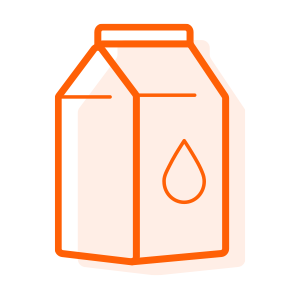
Should I cut dairy products out of my diet?
The experts’ recommendation is to follow a healthy, balanced diet that includes daily consumption of dairy products. Dairy products should only be eliminated from your diet if your oncologist or your registered dietitian indicates so.
MYTH
That the consumption of dairy products has a negative effect on people undergoing cancer treatment is another of the most common myths. This may be due to the false link between breast cancer and the type of fat contained in milk products. The fat in dairy products, which is mostly saturated, has always had a bad reputation.
RECOMMENDATION
During cancer treatment experts recommend following a healthy and balanced diet that includes daily consumption of dairy products (two or three servings a day), because of the nutrients they provide: proteins, vitamins, and minerals. Each person can consult their specialist about the most suitable version for their needs (whole milk, semi-skimmed or skimmed milk). In case of lactose intolerance, it is recommended to test the tolerance to fermented dairy products such as yogurt and cheese or use lactose-free dairy products. Soy, oat, rice, or almond milk are not nutritionally equivalent.
EVIDENCE
Current scientific evidence indicates that the adequate intake of dairy products such as milk, yoghurt and cheese is not associated with an increased risk of developing cancer, nor does it have a negative effect on treatment. Recent studies have shown that some components of milk, such as calcium, vitamin D, and lactoferrin, may have an anticarcinogenic effect and reduce the risk of certain types of cancer, such as breast or colon cancer, although further studies are needed to confirm these findings.
Scientific articles
- Aune D, Lau R, Chan DS, Vieira R, Greenwood DC, Kampman E, et al. Dairy products and colorectal cancer risk: a systematic review and meta-analysis of cohort studies. Ann Oncol. 2012; 23(1): 37-45.
- Barrubés L, Babio N, Becerra-Tomás N, Rosique-Esteban N, Salas-Salvadó J. Association Between Dairy Product Consumption and Colorectal Cancer Risk in Adults: A Systematic Review and Meta-Analysis of Epidemiologic Studies. Adv Nutr. 2019; 10(suppl_2): S190-S211. Erratum in: Adv Nutr. 2020; 11(4): 1055-1057.
- Chagas CE, Rogero MM, Martini LA. Evaluating the links between intake of milk/dairy products and cancer. Nutr Rev. 2012; 70(5): 294-300.
- De Cicco P, Catani MV, Gasperi V, Sibilano M, Quaglietta M, Savini I. Nutrition and breast cancer: A literature review on prevention, treatment and recurrence. Nutrients. 2019;11(7):1514.
- Forouhi NG. Association between consumption of daily products and incident type 2 diabetes-insights from the European Prospective Investigation into Cancer study. Nutr Rev. 2015; 73(1): 15-22.
- Fraser GE, Jaceldo-Siegl K, Orlich M, Mashchak A, Sirirat R, Knutsen S. Dairy, soy, and risk of breast cancer: Those confounded milks. International Journal of Epidemiology. 2020;49(5):1526–37.
- Gonzales JF, Barnard ND, Jenkins DJ, Lanou AJ, Davis B, Saxe G, et al. Applying the precautionary principle to nutrition and cancer. J Am Coll Nutr. 2014; 33(3): 239-46.
- Lampe JW. Dairy products and cancer. J Am Coll Nutr. 2011; 30(1): 464S-70S.
- López-Plaza B, Bermejo LM, Santurino C, Cavero-Redondo I, Álvarez-Bueno C, Gómez-Candela C. Milk and dairy product consumption and prostate cancer risk and mortality: An overview of systematic reviews and meta-analyses. Advances in Nutrition. 2019;10.
- Orlich MJ, Mashchak AD, Jaceldo-Siegl K, Utt JT, Knutsen SF, Sveen LE, et al. Dairy Foods, calcium intakes, and risk of Incident prostate cancer in Adventist health study–2. The American Journal of Clinical Nutrition. 2022;116(2):314–24.
- Park SW, Kim JY, Kim YS, Lee SJ, Lee SD, Chung MK. A milk protein, casein, as a proliferation promoting factor in prostate cancer cells. World J Mens Health. 2014; 32(2): 76-82.
- Song Y, Chavarro JE, Cao Y, Qiu W, Mucci L, Sesso HD, et al. Whole milk intake is associated with prostate cancer-specific mortality among U.S. male physicians. J Nutr. 2013; 143(2): 189-96.
- Zhang K, Dai H, Liang W, Zhang L, Deng Z. Fermented dairy foods intake and risk of cancer. International Journal of Cancer. 2018;144(9):2099–108.
Websites
- Cancer Council NSW [Internet]. 2021 [cited April 2023] Dairy Foods and calcium and cancer risk. Available from: https://www.cancercouncil.com.au/cancer-prevention/diet-exercise/nutrition-and-diet/dairy-foods-and-calcium/
- WCTR.org [Internet]. World Cancer Research Foundation International. 2022. [cited April 2023]. Meat, fish, dairy and cancer risk . Available from: https://www.wcrf.org/diet-activity-and-cancer/risk-factors/meat-fish-dairy-and-cancer-risk/
- Dairy Nutrition [Internet]. Dairy Nutrition Canada. 2022 [cited April 2023]. Milk products and breast cancer. Available from: https://dairynutrition.ca/en/nutrition-and-health/cancer/milk-products-and-breast-cancer
Books
- Bélibeau R, Gingras D. Recetas con los alimentos contra el cáncer. 1.ª ed. Barcelona: Integral; 2010.
- Bolch A, Cassileth B, Holmes M, Thomson C. Eating well, staying well during and after cancer. 1.ª ed. EUA: American Cancer Society; 2004.
Last updated: July 2023
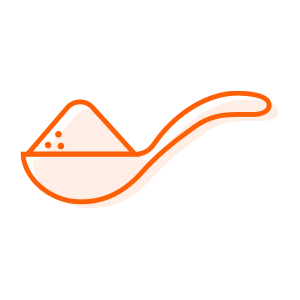
Does the consumption of sugar promote the growth of tumour cells?
Eating sugar or foods containing different types of sugars, especially from fruit, vegetables, and cereals, in moderation and as part of a balanced diet, has no harmful effects on health.
MYTH
Some sources have taken the results of studies revealing the effect of sugar on tumour cell growth out of context. This has led to the complete elimination of all sugars and sugar derivatives from the diet of many cancer patients for fear of ‘feeding’ the cancer cells.
RECOMMENDATION
Sugar is an essential nutrient and belongs to the group of carbohydrates, and they can be simple or complex. Simple sugars include refined sugar, pastries, and sugary drinks, and should be avoided. Nevertheless, simple sugars that come from fruit, or complex sugars coming from cereal, pasta or bread are highly recommended during cancer treatment because they produce energy and help the body function properly. Carbohydrates are part of a balanced diet and help to maintain an adequate nutritional state during cancer treatment. In the Mediterranean diet, 50-60% of daily energy should come from this food source.
EVIDENCE
In recent years, numerous authors have studied the effect of glucose on the replication of tumour cells, and some have evaluated the role of calorie restriction on tumour cells and molecular biology both in vitro and in vivo in animals. Such restrictions may have unintended consequences in patients undergoing cancer treatment, such as malnutrition, muscle loss and significant nutritional deficiencies, which may jeopardise the efficacy of cancer treatment. Therefore, current evidence in humans discourages the complete dietary carbohydrate restriction, even simple or complex, during treatment and encourages a balanced diet with sufficient energy and protein intake.
Scientific articles
- Bose S, Le A. Glucose Metabolism in Cancer. Adv Exp Med Biol . 2018; 1063: 3-12.
- Bozzetti F, Stanga Z. Does nutrition for cancer patients feed the tumour? A clinical perspective. Crit Rev Oncol Hematol. 2020, 153: 103061.
- Muscaritoli M et al. ESPEN practical guideline: Clinical Nutrition in Cancer. Clin Nutr, 2021, 40: 2898-2913
- Lin X, Xiao Z, Chen T, Liang SH, Guo H. Glucose Metabolism on Tumor Plasticity, Diagnosis, and Treatment. Front Oncol. 2020 Mar 6;10:317. doi: 10.3389/fonc.2020.00317. PMID: 32211335; PMCID: PMC7069415.
- Li Z, Zhang H. Reprogramming of glucose, fatty acid and amino acid metabolism for cancer progression. Cell Mol Life Sci. 2016 Jan;73(2):377-92.
Websites
- Cancer Center [internet]. EUA: Cancer Treatment Centers of America; 2023 [cited October 2022]. Natural vs. Refined sugar: What’s the difference? Available from: https://www.cancercenter.com/community/blog/2022/10/natural-vs-refined-sugars-what-is-the-difference
- Cancer.net [internet]. EUA: American Society of Clinical Oncology; 2022 [cited September 2022]. ¿El azúcar provoca cáncer? Available from: https://www.cancer.net/es/blog/2022-09/%C2%BFel-az%C3%BAcar-provoca-c%C3%A1ncer
- MD Anderson [internet]. Texas: MD Anderson Cancer Center, University of Texas; 2015 [cited April 2023]. Does cancer love sugar. Available from: http://www.mdanderson.org/patient-and-cancer-information/cancer-information/cancer-topics/prevention-and-screening/food/cancersugar.html
Books
- Bélibeau R, Gingras D. Recetas con los alimentos contra el cáncer. 1.ª ed. Barcelona: Integral; 2010.
- Bolch A, Cassileth B, Holmes M, Thomson C. Eating well, staying well during and after cancer. 1.ª ed. EUA: American Cancer Society; 2004
- Le, A. The heterogeneity of cancer metabolism. 2ed; Springer 2021. https://doi.org/10.1007/978-3-030-65768-0_19
Last updated: July 2023

Does chocolate have a negative effect on people undergoing cancer treatment?
A moderate consumption of chocolate has no negative effect on the health of patients undergoing cancer treatment. Chocolate, preferably dark or high in cocoa (minimum 70%), can be included in a balanced diet, in moderate quantities.
MYTH
The origin of the myth, which has led some people to eliminate chocolate from their diet altogether, may lie in the fact that a lot of chocolate-based foods are relatively high in sugars and/or fats, and therefore in calories. High consumption of these products can contribute to weight gain and obesity, factors that can increase the risk of some diseases, including cancer.
RECOMMENDATION
We can include chocolate consumption as part of a healthy and balanced diet. Scientific evidence justifies a moderate consumption of dark chocolate (>70% cocoa), two or three times a week without exceeding 50 g per week.
EVIDENCE
There is no scientific evidence that links a moderate consumption of chocolate with an increased risk of developing cancer or interaction with cancer treatment. In recent years, the possible health benefits of consuming dark chocolate (>70% cocoa) have been studied due to its high content of polyphenols (with high antioxidant power) and other bioactive compounds, with benefits observed in the cardiovascular and nervous systems.
Scientific articles
- Al Sunni A, Latif R. Effects of chocolate intake on Perceived Stress; a Controlled Clinical Study. Int J Health Sci (Qassim). 2014; 8(4): 393-401.
- Chapman PM. Overview of scientific evidence for chocolate Health benefits. Integr Environ Asses Manag. 2015; 1(11): 176-178.
- Goya L, Martín MÁ, Sarriá B, Ramos S, Mateos R, Bravo L. Efecto del cacao y sus flavonoides sobre biomarcadores de inflamación: estudios de cultivo celular, animales y humanos. nutrientes _ 2016; 8(4):212. https://doi.org/10.3390/nu8040212
- Esser D, Mars M, Oosterink E, Stalmach A, Müller M, Afman LA. Dark chocolate consumption improves leukocyte adhesion factors and vascular function in overweight men. FASEB J. 2014; 28(3): 1464-73.
- Vettori JC, da-Silva LG, Pfrimer K, Jordão AA, Louzada-Junior P, Moriguti JC, Ferriolli E, Lima NKC. Effect of chocolate on older patients with cancer in palliative care: a randomised controlled study. BMC Palliat Care. 2022 Jan 4;21(1):5. doi: 10.1186/s12904-021-00893-1. PMID: 34980096; PMCID: PMC8725414.
- Shin JH, Kim CS, Cha L, Kim S, Lee S, Chae S, Chun WY, Shin DM. Consumption of 85% cocoa dark chocolate improves mood in association with gut microbial changes in healthy adults: a randomized controlled trial. J Nutr Biochem. 2022 Jan;99:108854. doi: 10.1016/j.jnutbio.2021.108854. Epub 2021 Sep 14. PMID: 34530112.
- Martin MÁ, Ramos S. Impact of cocoa flavanols on human health. Food Chem Toxicol. 2021 May;151:112121. doi: 10.1016/j.fct.2021.112121. Epub 2021 Mar 13. PMID: 33722594.
- Montagna MT, Diella G, Triggiano F, Caponio GR, De Giglio O, Caggiano G, Di Ciaula A, Portincasa P. Chocolate, Food of the Gods: History, Science, and Human Health. Int J Environ Res Public Health. 2019; 16(24): 4960.
- Nabavi SF, Sureda A, Daglia M, Rezaei P, Nabavi SM. Anti-oxidative polyphenolic compounds of Cocoa. Curr Pharm Biotechnol. 2015; 16(10): 891-901.
- Braakhuis AJ, Campion P, Bishop KS. Reducción de la recurrencia del cáncer de mama: el papel de los polifenoles dietéticos. nutrientes _ 2016; 8(9):547. https://doi.org/10.3390/nu8090547
Websites
- American Institute for Cancer Research [internet]. Washington DC: American Institute for Cancer Research; 2013 [cited April 2023]. We hear so much about antioxidant compounds in chocolate. What about cocoa and chocolate milk?. Available from: https://www.aicr.org/resources/blog/healthtalk-we-hear-so-much-about-antioxidant-compounds-in-chocolate-what-about-cocoa-and-chocolate-milk/
- Cancer [internet]. EUA: American Cancer Society; 2020 [cited April 2023]. Is chocolate good for you? Available from: https://www.cancer.org/cancer/latest-news/is-chocolate-good-for-you.html
Books
- Bélibeau R, Gingras D. Recetas con los alimentos contra el cáncer. 1.ª ed. Barcelona: Integral; 2010.
- Bolch A, Cassileth B, Holmes M, Thomson C. Eating well, staying well during and after cancer. 1.ª ed. EUA: American Cancer Society; 2004.
Last updated: July 2023

Can I eat artificial sweeteners?
The consumption of artificial sweeteners available in the market is considered safe within the Acceptable Daily Intake (ADI). Nevertheless, experts are increasingly advising to restrict their consumption due to the lack of nutritional benefits they offer. Furthermore, they are often associated with highly processed products, the excessive consumption of which is linked to health issues.
MYTH
In recent decades, various claims have linked the consumption of artificial sweeteners to different adverse health effects, including a potential association with cancer. Some media have disseminated anecdotal reports or news publications that create confusion regarding the safety of sweeteners and the actual existing evidence.
RECOMMENDATION
People undergoing cancer treatment can safely consume sweeteners or foods containing them, always within the context of a balanced diet and in moderate quantities. Nevertheless, the World Health Organization (WHO) advises against their consumption for the general population, only justifying their use in people diagnosed with diabetes, where artificial sweeteners can replace sugars that have a greater impact on blood sugar levels.
EVIDENCE
Artificial sweeteners or low-calorie sweeteners (such as acesulfame K, aspartame, saccharin...) are ingredients that are 150 to 600 times sweeter than sugar and have minimal to zero calories. They are used to sweeten foods and also serve as food additives, especially in products and diets for people with diabetes, low-calorie diets, etc. The European Food Safety Authority (EFSA) regularly reviews their safety, and the E number indicates that the product has been approved and is safe for human consumption. Organizations like the International Agency for Research on Cancer (IARC) and the Joint FAO/WHO Expert Committee on Food Additives (JECFA) also supplement these reviews and have recently published their assessments on the effects of aspartame. Currently, there is only limited evidence in the case of excessive aspartame consumption, with it being classified as possibly carcinogenic to humans, specifically for a type of liver cancer. The same publication has also reaffirmed that consuming an amount within the acceptable daily intake is harmless, with no need to modify its value, limited to 40 mg/kg of body weight. Regarding other artificial sweeteners, there is no evidence suggesting an association with cancer development or interaction during treatment.
Scientific articles
- Harpaz D, Yeo LP, Cecchini F, Koon THP, Kushmaro A, Tok AIY, Marks RS, Eltzov E. Measuring Artificial Sweeteners Toxicity Using a Bioluminescent Bacterial Panel. Molecules. 2018; 23(10): 2454.
- Mishra A, Ahmed K, Froghi S, Dasgupta P. Systematic review of the relationship between artificial sweetener consumption and cancer in humans: analysis of 599,741 participants. Int J Clin Pract. 2015.
- Makarem N, Bandera EV, Nicholson JM, Parekh N. Consumption of Sugars, Sugary Foods, and Sugary Beverages in Relation to Cancer Risk: A Systematic Review of Longitudinal Studies. Annu Rev Nutr. 2018 Aug 21;38:17-39. doi: 10.1146/annurev-nutr-082117-051805. Epub 2018 May 25. PMID: 29801420.
Websites
- Cancer [internet]. EUA: National Cancer Institute at the National Institutes of Health; 2023 [cited July 2023]. Edulcorantes Artificiales y el Cáncer. Available from: http://www.cancer.gov/espanol/recursos/hojas-informativas/riesgo-caEUAs/edulcorantes-artificiales
- Cancer [internet]. EUA: American Cancer Society; 2023 [cited July de 2023]. Aspartame and cancer risk. Available from: http://www.cancer.org/cancer/cancercauses/othercarcinogens/athome/aspartame
- Cancer Research UK [internet]. Londres: Cancer Research UK; 2023 [cited July 2023]. Do artificial sweeteners cause cancer? Available from: https://www.cancerresearchuk.org/about-cancer/causes-of-cancer/cancer-myths/do-artificial-sweeteners-cause-cancer
- Food and Drug Administration [internet]. EUA: U.S. Food and Drug Administration (FDA); 2023 [cited July 2023]. European Aspartame Study. Available from: https://www.fda.gov/food/food-additives-petitions/aspartame-and-other-sweeteners-food
- WHO [internet]. World Health Organization; 2023 [cited July 2023].Use of non-sugar sweeteners: WHO guideline. Available from: https://www.who.int/publications/i/item/9789240073616
- WHO [internet]. World Health Organization; 2023 [cited July 2023] Resultados de la evaluación del riesgo y la peligrosidad del aspartamo. Available from: https://www.who.int/es/news/item/14-07-2023-aspartame-hazard-and-risk-assessment-results-released
Last updated: July 2023

Is harmful to drink tap water during treatment?
Under no circumstances. Tap water (provided it is stipulated as drinking water) can be used for human consumption, both for cooking and drinking.
MYTH
Some sources of information suggest that patients should not drink tap water during treatment as some of its components (fluoride, chlorine) can be harmful. The origin of this belief may have emerged from studies published in the 1990s on the development of bone cancer in rats that were given fluoridated water. In addition, there is a popular belief that tap water is not good to drink because it is not known where it comes from, how it is transported or what materials the pipes are made of.
RECOMMENDATION
Drinking water is essential, especially for people undergoing cancer treatment. It is necessary to keep the body's cells well hydrated so that they can better withstand the treatment. Patients should drink two litres of water (about eight glasses) daily. If you drink tap water regularly, you can continue to do so safely during cancer treatment.
EVIDENCE
There is no scientific evidence that proves any connection between the consumption of fluoridated water and the development of cancer or a detrimental effect on cancer treatment. Water fluoridation is a public health measure to help prevent tooth decay, but this is not used in tap water in Spain. Chlorine is added to water to disinfect it from microbial agents that could be harmful to our health. The World Health Organisation (WHO) brings together groups of scientists to evaluate health criteria to ensure the safety of water for public consumption.
Scientific articles
- Sasada T, Hinoi T, Saito Y, Adachi T, Takakura Y, Kawaguchi Y, et al. Chlorinated Water Modulates the Development of Colorectal Tumors with Chromosomal Instability and Gut Microbiota in Apc-Deficient Mice. PLoS One. 2015; 10(7): e0132435.
- Villanueva CM, Gracia-Lavedan E, Bosetti C, Righi E, Molina AJ, Martín V, Boldo E, Aragonés N, Perez-Gomez B, Pollan M, Acebo IG, Altzibar JM, Zabala AJ, Ardanaz E, Peiró R, Tardón A, Chirlaque MD, Tavani A, Polesel J, Serraino D, Pisa F, Castaño-Vinyals G, Espinosa A, Espejo-Herrera N, Palau M, Moreno V, La Vecchia C, Aggazzotti G, Nieuwenhuijsen MJ, Kogevinas M. Colorectal Cancer and Long-Term Exposure to Trihalomethanes in Drinking Water: A Multicenter Case-Control Study in Spain and Italy. Environ Health Perspect. 2017; 125(1): 56-65.
- Iro Evlampidou, Font-Ribera L , Rojas-Rueda D , Gracia-Lavedan E, Costet, N et al. Trihalomethanes in Drinking Water and Bladder Cancer Burden in the European Union. Environ Health Perspect. 2020.
Websites
- Cancer [internet]. EUA: National Cancer Institute; 2017 [cited July 2023]. Fluoridated Water. Available from: http://www.cancer.gov/cancertopics/factsheet/Risk/fluoridated-water
- Cancer [internet]. EUA: American Cancer Society; 2022 [cited July 2023]. Water Fluoridation and Cancer Risk. Available from: https://www.cancer.org/cancer/risk-prevention/chemicals/water-fluoridation-and-cancer-risk.html
Internet monographs
- World Cancer Research Fund, American Institute for Cancer Research. Diet, nutrition, physical activity and the prevention of cancer: a global perspective [internet]. Washington DC: AICR; 2018 [cited July 2023]. Available from: https://www.wcrf.org/wp-content/uploads/2021/02/Summary-of-Third-Expert-Report-2018.pdf
Last updated: July 2023

Can I eat oily fish?
Yes. Fish (both white and oily varieties) and seafood are essential in a balanced and varied diet. They are an excellent source of proteins, minerals, vitamins from group B (B6 and B12) and vitamins A, D, E, and the best food source of omega-3 fatty acids.
MYTH
The origin of the myth comes from the apparent mercury content in oily fish and the health risks associated with its consumption. Some sources advocate its negative effect during cancer treatment and therefore promote the total elimination of oily fish from the diet.
RECOMMENDATION
Fish is an essential food and must be a regular part of the diet of people undergoing cancer treatment due to its multiple benefits. Patients should eat fish three to four times a week, where one or two of the times it should be oily fish (sardines, mackerel, anchovies, salmon, etc.).
EVIDENCE
Today, evidence shows that omega-3 fatty acids in oily fish have a positive effect during the treatment and prevention of some types of tumours. Mercury is an element that can bioaccumulate in some long-lived predatory species such as tuna, swordfish, groupers, or shark. Both the European Food Safety Authority (EFSA) and the Spanish Agency for Food Safety and Nutrition advise the consumption of oily fish occasionally and recommend avoiding it in pregnant and breastfeeding women and children from 1 to 30 months. Small oily fish (sardines, anchovies, mackerel, etc.) and white fish do not accumulate methylmercury and can therefore be eaten regularly as part of a balanced diet.
Scientific articles
- Arends J, Bachmann P, Baracos V et al. ESPEN guidelines on nutrition in cancer patients. Clinical Nutrition 36 (2017) 11-48. https://www.espen.org/files/ESPEN-Guidelines/ESPEN_guidelines_on_nutrition_in_cancer_patients.pdf
- Cockbain AJ, Volpato M, Race AD, et al. Anticolorectal cancer activity of the omega-3 polyunsaturated fatty acid eicosapentaenoic acid. Gut. 2014; 63(11): 1760-8
- Devi KP, Rajavel T, Russo GL, Daglia M, Nabavi SF, Nabavi SM. Molecular Targets of Omega-3 Fatty Acids for Cancer Therapy. Anticancer Agents Med Chem. 2015; 15(7): 888-95.
- Fabian CJ, Kimler BF, Hursting SD. Omega-3 fatty acids for breast cancer prevention and survivorship. Breast Cancer Res. 2015; 17: 62.
- Geng JJ, Li H, Liu JP, Yang Y, Jin ZL, Zhang YN, et al. Nutrients and contaminants in tissues of five fish species obtained from Shangai Markets: Risk-benefit evaluation from human Health perspectives. Sci Total Environ. 2015; 536: 933-45.
- Lee KH, Seong HJ, Kim G, Jeong GH, Kim JY, Park H, et al. Consumption of fish and ω-3 fatty acids and cancer risk: An umbrella review of meta-analyses of observational studies. Advances in Nutrition. 2020;11(5):1134–49.
- McClain KM, Bradshaw PT, Khankari NK, Gammon MD, Olshan AF. Fish/shellfish intake and the risk of head and neck cancer. Eur J Cancer Prev. 2019;28(2):102-108.
- Nindrea RD, Aryandono T, Lazuardi L, Dwiprahasto I. Protective Effect of Omega-3 Fatty Acids in Fish Consumption Against Breast Cancer in Asian Patients: A Meta-Analysis. Asian Pac J Cancer Prev. 2019; 20(2): 327-332.
- Song J, Su H, Wang B-long, Zhou Y-yang, Guo L-L. Fish consumption and lung cancer risk: Systematic review and meta-analysis. Nutrition and Cancer. 2014;66(4):539–49.
Websites
- EPA. Environmental Protection Agency [Internet]; [cited 2023 March11]. Choose Fish and Shellfish Wisely. Available from: https://www.epa.gov/choose-fish-and-shellfish-wisely
- European Food Safety Authority [internet]. UE: European Food Safety Authority (EFSA); 2004 [cited 2015 March]. EFSA provides risk assessment on mercury in fish: precautionary advice given to vulnerable groups. Available from: http://www.efsa.europa.eu/en/press/news/contam040318.htm
- U.S. Food and Drug Administration. [Internet]; 2020 [cited 2023Apr11]. FDA issues recommendations for certain high-risk groups regarding. Available from: https://www.fda.gov/news-events/press-announcements/fda-issues-recommendations-certain-high-risk-groups-regarding-mercury-containing-dental-amalgam
- EPA. Environmental Protection Agency [Internet].; [cited 2023Apr11]. Health Effects of Exposures to Mercury. Available from: https://www.epa.gov/mercury/health-effects-exposures-mercury
- Aesan. [Internet]; [cited 2023May 5]. Mercurio. Available from: https://www.aesan.gob.es/AECOSAN/web/seguridad_alimentaria/ampliacion/mercurio.htm
- FDA [Internet].. 2023 [cited 2023Apr11]. Mercury in Food and Dietary Supplements. Available from: https://www.fda.gov/food/environmental-contaminants-food/mercury-food-and-dietary-supplements
Books
- Bélibeau R, Gingras D. Recetas con los alimentos contra el cáncer. 1.ª ed. Barcelona: Integral; 2010.
- Bolch A, Cassileth B, Holmes M, Thomson C. Eating well, staying well during and after cancer. 1.ª ed. EUA: American Cancer Society; 2004.
Last updated: July 2023
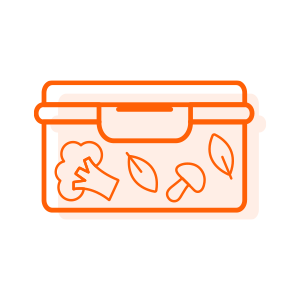
Are all containers to store and conserve food safe?
Food-grade containers approved by the European Union, when used properly (single-use containers should not be reused, and they should not be microwaved unless specifically indicated as microwave-safe), are safe during cancer treatment.
MYTH
Some sources link the use of plastic containers (containing bisphenol A or BPA) to an increased risk of certain types of cancer, such as breast or prostate cancer, as well as other diseases. This is due to the potential migration of small amounts of BPA into the food, which can interfere with hormonal balance
RECOMMENDATION
The whole population, both for sustainability and healthy reasons, should reduce the use of single-use plastics and consequently limit the consumption of foods and beverages wrapped or coated in plastic. Some cancer research institutes recommend restricting the use of products containing BPA in breast cancer and other hormone-dependent tumors. This recommendation does not contraindicate the use of food-grade plastic containers, provided they are used correctly. It is recommendable to prioritize glass containers for both storing and preserving food at home and for reheating food in the microwave. Additionally, materials in contact with food should be manufactured in compliance with EU regulations to ensure that any potential transfer to the food does not pose safety issues or have adverse effects on the food.
EVIDENCE
Chemicals like BPA used in food containers can migrate in very small amounts into the food and beverage they contain, with limited evidence suggesting potential adverse effects on the immune system. Facing these risks and the difficulty of estimating the level of exposure to these components, the European Food Safety Authority (EFSA) recently published the results of its reevaluation of the health risk posed by the presence of BPA in food. This includes a significant reduction in the TDI (tolerable daily intake) to 0.2 nanograms per kilogram of body weight per day, as a public health strategy. They also warn that all individuals across all age and groups with average and high exposure to BPA are exceeding this intake, indicating a health issue due to dietary exposure to BPA. Therefore, authorities are implementing protective measures for the population, such as the new Waste Law, which prohibits the use of BPA, to ensure the safety of packaging and compliance with the new EFSA recommendations.
Scientific articles
- Calaf GM, Ponce-Cusi R, Aguayo F, Muñoz JP, Bleak TC. Endocrine disruptors from the environment affecting breast cancer. Oncol Lett. 2020; 20(1): 19-32.
- Sonavane M, Gassman NR. Bisphenol A co-exposure effects: a key factor in understanding BPA's complex mechanism and health outcomes. Crit Rev Toxicol. 2019; 49(5): 371-386.
- Konieczna, A., Rutkowska, A., & Rachoń, D. (2015). Health risk of exposure to Bisphenol A (BPA). Roczniki Panstwowego Zakladu Higieny, 66(1), 5–11
Websites
- Breast Cancer UK. Bowers L. [Internet]. 2020 [cited 2023Apr11]. Is our exposure to BPA higher than we thought? Available from: https://www.breastcanceruk.org.uk/is-our-exposure-to-bpa-higher-than-we-thought/
- European Food Safety Authority [internet]. UE: EFSA; 2022 [cited May 2022]. Bisphenol A. Available from: http://www.efsa.europa.eu/en/topics/topic/bisphenol.htm?activeTab=5
- European Food Safety Authority [internet]. UE: EFSA; 2021 [cited December 2021]. Bisfenol A: El proyecto de dictamen de la EFSA propone reducir la ingesta diaria tolerable. Available from: https://www.efsa.europa.eu/es/news/bisphenol-efsa-draft-opinion-proposes-lowering-tolerable-daily-intake
- Breast Cancer Org. [Internet]. 2023 [cited 2023Apr11]. Exposure to chemicals in plastic. Available from: https://www.breastcancer.org/risk/risk-factors/exposure-to-chemicals-in-plastic
- Breast Cancer Prevention Partners (BCPP). [Internet]. 2020 [cited 2023Apr11] Food packaging tips. Available from: https://www.bcpp.org/our-work/tips-for-prevention/food-packaging/
- Harvard University: Harvard Health Publications [internet] December 2019; Is plastic a threat to your health? Available from: http://www.health.harvard.edu/fhg/updates/update0706a.shtml
- Breast Cancer Prevention Partners (BCPP) [internet] December 2019. Hormone disruption and breast development. Available from: https://www.bcpp.org/resource/hormone-disruption-and-breast-development/
- Materiales en contacto con Los Alimentos (no date) Autoridad Europea de Seguridad Alimentaria. Available from: https://www.efsa.europa.eu/es/topics/topic/food-contact-materials (Accessed: April 11, 2023).
Last updated: July 2023

Do I need special pots and pans?
No. Teflon and all other commercially available materials suitable for cooking are safe and adequate for people during cancer treatment.
MYTH
Some sources claim that non-stick cookware, a material better known as Teflon, has harmful health effects and recommend the exclusive use of pots and pans made from porcelain. The origin of this myth may lie in the fact that the fumes released from a non-stick frying pan if overheated to very high temperatures (350-650 °C) could be toxic if inhaled. These temperatures, however, are never reached in domestic kitchens.
RECOMMENDATION
There is no justification for the use of porcelain utensils as the only safe material for cooking during cancer treatment. Any commercially available material can be used safely. Nevertheless, it is recommended, not only for people affected by cancer but for the whole population, that utensils that are in contact with food should be of good quality, suitable for cooking and in good condition, without scratches or any other damage.
EVIDENCE
There is no confirmed scientific evidence that proves the materials used in cooking (silicone, plastics, ceramics, enamel, glass, stainless steel, iron, non-stick copper, and aluminium) have harmful effects on health, can cause cancer, or interfere with treatment, provided they are used according to the manufacturer's recommendations. Regarding Teflon, the International Agency for Research on Cancer (IARC) specifies that there is no evidence to classify Teflon tetrafluoroethylene as a carcinogen, so using materials containing Teflon does not pose a health risk. It could pose a risk if utensils are overheated to temperatures above 350 °C, which is not reached in domestic kitchens and would burn the food, which could not be consumed.
Scientific articles
- Kontou N, Psaltopoulou T, Soupos N, Polychronopoulos E, Linos A, Xinopoulos D, et al. The role of number of meals, coffee intake, salt and type of cookware on colorectal cancer development in the context of the Mediterranean diet. Public Health Nutrition. 2012;16(5):928–35.
Websites
- Canada H. Government of Canada [Internet]. Canada.ca. / Gouvernement du Canada; 2015 [cited 2023Apr11]. Available from: https://www.canada.ca/en/health-canada/services/household-products/safe-use-cookware.html
- Healthline. Healthline Media; [Internet] 2022 [cited 2023Apr11].Coyle D. Is nonstick cookware like teflon safe to use? Available from: https://www.healthline.com/nutrition/nonstickcookwaresafety#:~:text=Today's%20nonstick%20and%20Teflon%20cookware,hotter%20cooking%20methods%20like%20broiling.
- Healthline. Healthline Media; [Internet]. 2020 [cited 2023Apr11]. Person. Teflon cancer: Can nonstick cookware increase cancer risk? Available from: https://www.healthline.com/health/teflon-cancer
- Centers for Disease Control and Prevention. Centers for Disease Control and Prevention; [Internet]. 2021 [cited 2023Apr11]. Perfluoroalquilos (Perfluoroalkyls). Available from: https://www.atsdr.cdc.gov/es/toxfaqs/es_tfacts200.html
- American Cancer Society. [Internet]. 2023 [cited 2023Apr11]. Perfluorooctanoic acid (PFOA), perfluorooctane sulfonate (PFOS), and Related Chemicals. Available from: https://www.cancer.org/healthy/cancer-causes/chemicals/teflon-and-perfluorooctanoic-acid-pfoa.html
Last updated: July 2023

Is it safe to use the microwave?
The use of a microwave oven does not present any risk to health. The health authorities have been guaranteeing its safety for years and it can be used daily to heat and cook food with complete peace of mind.
MYTH
There are many myths surrounding microwaves and their effects on health, especially regarding their use causing the onset of cancer. The origin of these myths comes from the misinterpretation of the effects the radiation that these appliances use to heat or cook food has on people.
RECOMMENDATION
Always use microwave-safe containers and do not exceed the re commended cooking times so as not to overheat the food. Microwaves can be used for both heating and cooking food, representing a cooking method that has advantages over traditional systems: it minimises cooking time, is clean and preserves the nutrients of the food in a slightly higher proportion than other cooking methods.
EVIDENCE
Microwave cooking does not change the chemical composition of the food and does not emit ionising radiation. The appliance generates waves that interact with the polar molecules of food (mainly water) generating movement, and it is the collisions with adjacent molecules that produce the heat that cooks the food. The safety of microwave waves is endorsed by both the World Health Organisation and the US Food and Drug Administration (FDA), and their alleged link to cancer was disproved in 2004 by the Spanish Association Against Cancer.
Websites
- Can I get cancer from my microwave oven? [Internet]. Willis-Knighton Cancer Center. [cited 2023Apr11]. Available from: https://www.wkhs.com/cancer/education-resources/cancer-center-health-library/medical-procedures-tests/can-i-get-cancer-from-my-microwave-oven
- Does radiation from microwaves cause cancer? [Internet]. Cancer Council. [cited 2023Apr11]. Available from: https://www.cancer.org.au/iheard/does-radiation-from-microwaves-cause-cancer
- Microwave cooking and nutrition [Internet]. Harvard Health. 2021 [cited 2023Apr11]. Available from: https://www.health.harvard.edu/staying-healthy/microwave-cooking-and-nutrition
- Microwave ovens [Internet]. U.S. Food and Drug Administration. FDA; 2023 [cited 2023Apr11]. Available from: https://www.fda.gov/radiation-emitting-products/resources-you-radiation-emitting-products/microwave-ovens
- World Health Organization. WHO.[internet] 2005, updated 2023. Radiation: Microwave ovens. Available from: https://www.who.int/news-room/questions-and-answers/item/radiation-microwave-ovens
- Asociación Española contra el Cáncer (AECC). [internet]2004 [cited March 2015]. Campos electromagnéticos y cáncer: preguntas y respuestas Madrid: Asociación Española contra el Cáncer; Available from: http://www.gencat.cat/mediamb/sosten/telf/pdf/aecc.pdf
- Yashoda Hospitals. [internet] 2019 [cited March 2021]. Do microwaves ovens cause cancer?. Available from: https://www.yashodahospitals.com/blog/do-microwave-ovens-cause-cancer/
Last updated: July 2023
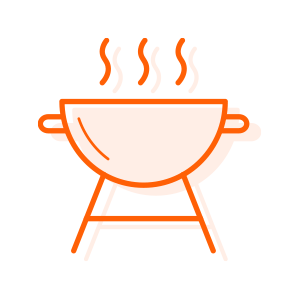
Is eating grilled food during cancer treatment harmful?
Some compounds found in grilled foods may be carcinogenic, but there is no evidence linking this effect to occasional consumption.
MYTH
There is much controversy and discussion about the consumption of grilled or barbecued foods being associated with an increased risk of developing cancer. Some sources suggest that any food cooked with these techniques should be directly removed from the diet.
RECOMMENDATION
There is currently no specific indication as to how often these foods should be consumed during cancer treatment. Therefore, the recommendation would be the same as for the rest of the population: the occasional use of this type of cooking technique, leave a good enough distance between the grill and the food to avoid burning, and always remove the blackest parts before eating. Marinate meat with antioxidant compounds such as garlic, ginger, pepper, and onion will help to protect the food and reduce the formation of carcinogenic compounds.
EVIDENCE
Polycyclic aromatic hydrocarbons (PAHs) and heterocyclic amines (HCAs) are compounds found in grilled foods (fish and meat) or some smoked foods. Some studies have shown that they may cause changes in DNA and thus be carcinogenic: some PAHs have been classified as probable carcinogens in humans by the International Agency for Research on Cancer (IARC) such as benzo[a]pyrene. In addition, exposure to high levels of HCAs may cause cancer in animals (the connection in humans being unclear). Nevertheless, there is not enough evidence to link occasional consumption with a harmful effect when treating cancer.
Scientific articles
- Figg WD 2nd. How do you want your steak prepared? The impact of meat consumption and preparation on prostate cancer. Cancer Biol Ther. 2012; 13(12): 1141-2.
- Fu Z, Shrubsole MJ, Li G, Smalley WE, Hein DW, Chen Z, et al. Using gene-environment interaction analyses to clarify the role of well-done meat and heterocyclic amine exposure in the etiology of colorectal polyps. Am J Clin Nutr. 2012; 96(5): 1119-28.
- Jakobsen LS, Georgiadis S, Nielsen BF, et al. Probabilistic approach for assessing cancer risk due to benzo[a]pyrene in barbecued meat: Informing advice for population groups. PLoS One. 2018; 13(11): e0207032.
- Ollberding NJ, Wilkens LR, Henderson BE, Kolonel LN, Le Marchand L. Meat consumption, heterocyclic amines and colorectal cancer risk: the multiethnic cohort study. Int J Cancer. 2012; 131(7): E1125-33.
- Parada H Jr, Steck SE, Bradshaw PT, et al. Grilled, barbecued, and smoked meat intake and survival following breast cancer. J Natl Cancer Inst. 2017; 109(6): djw299.
- Tasevska N, Cross AJ, Dodd KW, Ziegler RG, Caporaso NE, Sinha R. No effect of meat, meat cooking preferences, meat mutagens or heme iron on lung cancer risk in the prostate, lung, colorectal and ovarian cancer screening trial. Int J Cancer. 2011; 128(2): 402-11.
- Omofuma OO, Steck SE, Olshan AF, Troester MA. The association between meat and fish intake by preparation methods and breast cancer in the Carolina Breast Cancer Study (CBCS). Breast Cancer Res Treat [Internet]. 2022 May 1 [cited 2023 Mar 31];193(1):187–201.
- Adeyeye SAO, Ashaolu TJ. Heterocyclic amine formation and mitigation in processed meat and meat products: A mini-review. J Food Prot. 2021;84(11):1868–77.
Websites
- American Institute for Cancer Research [internet]. EUA: American Institute for Cancer Research; 2014 [cited March 2015]. Guide to Healthy Grilling. Available from: https://www.aicr.org/news/guide-to-healthy-grilling/
- American Institute for Cancer Research [Internet]. [cited 2023 Mar 31]. Practicing Safe Grilling Can Reduce Cancer Risk, Experts Say. Available from: https://www.aicr.org/news/practicing-safe-grilling-can-reduce-cancer-risk-experts-say/
- Cancer [internet]. EUA: National Cancer Institute at the National Institutes of Health; 2010 [cited March 2015]. Chemicals in meat cooked at high temperatures and cancer risk. Available from: http://www.cancer.gov/cancertopics/factsheet/Risk/cooked-meats
Legal documents
- Regulation establishing the maximum levels for certain contaminants in food products. Regulation (EC) No 1881/2006 of 19 December 2006. Official Journal of the European Union No. L 364 (20-12-2006).
Last updated: July 2023

Should I follow an exclusively organic diet?
This is not necessary. Buying organic food is a personal choice and not a medical recommendation. Because of the extensive regulatory framework, both organic and conventional food can be consumed reliably.
MYTH
Many unsupported sources recommend a "natural" or exclusively organic diet for people affected by cancer to avoid pesticide or antibiotic residues that may be contained in some conventional foods.
RECOMMENDATION
Consuming food produced more sustainably is beneficial for the sustainability of the planet, especially if it is local. It is recommended, whatever the choice: to buy from trusted, quality establishments, to consume local and seasonal products, and to wash fruit and vegetables thoroughly before eating. Buying organic food is, therefore, a personal choice and not a recommendation. It should be noted that not all organic food will be good, as some contain high proportions of saturated fats, sugars...
EVIDENCE
Although some studies indicate that there are higher concentrations of some health-promoting components in organic products, the claim that they are nutritionally or biologically better is not compatible with the current scientific evidence, which, to date, has not shown them to be safer or more nutritious than conventional foods. Regarding the effects of eating organic or conventional food on cancer prevention or treatment, some studies link the consumption of organic food to a lower risk of cancer, but more studies are needed to establish a concrete conclusion and recommendation.
Scientific articles
- Bradbury KE, Balkwill A, Spencer EA, Roddam AW, Reeves GK, Green J, et al. Organic food consumption and the incidence of cancer in a large prospective study of women in the United Kingdom. Br J Cancer. 2014; 110(9): 2321-6.
- Baudry J, Assmann KE, Touvier M, et al. Association of frequency of organic food consumption with cancer risk: findings from the NutriNet-Santé prospective cohort study [published correction appears in JAMA Intern Med. 2018; 178(12): 1732]. JAMA Intern Med. 2018; 178(12): 1597-1606.
- Ennour-Idrissi K, Ayotte P, Diorio C. Persistent organic pollutants and breast cancer: a systematic review and critical appraisal of the literature. Cancers (Basel). 2019; 11(8): 1063.
- Park YMM, White A, Niehoff N, O'Brien K, Sandler D. Association between organic food consumption and breast cancer risk: findings from the sister study (P18-038-19). Curr Dev Nutr. 2019; 3(Suppl 1): nzz039. P18-038-19.
- Glibowski P. Organic food and health. Vol. 71, Roczniki Panstwowego Zakladu Higieny. NLM (Medline); 2020. P. 131–6.
- Karavasiloglou N, Pannen ST, Jochem C, Kuhn T, Rohrmann S. Sustainable Diets and Cancer: a Systematic Review. 1234 CAancer (Mf Leitzmann and T kuhn, Section Editors) 2022.
- Kesse-Guyot E, Lairon D, Allès B, Seconda L, Rebouillat P, Brunin J, et al. Key Findings of the French BioNutriNet Project on Organic Food-Based Diets: Description, Determinants, and Relationships to Health and the Environment. Adv Nutr. 2022;13:208–24.
Websites
- Agencia Española de Consumo, Seguridad Alimentaria y Nutrición [internet]. España: Agencia Española de Consumo, Seguridad Alimentaria y Nutrición (AECOSAN); 2014 [cited March 2015]. Frutas y verduras siempre seguras. Available from: http://www.aesan.gob.es/AECOSAN/web/para_el_consumidor/ampliacion/frutas_verduras.htm
- Beyond Pesticides [internet]. EUA: Beyond Pesticides; 2014 [cited March 2015]. Pesticide-induced diseases: cancer. Available from: http://www.beyondpesticides.org/health/cancer.php
- Cancer [internet]. EUA: National Cancer Institute at the National Institutes of Health; 2014 [cited March 2015]. Agricultural Health Study. Available from: https://dceg.cancer.gov/research/who-we-study/cohorts/agricultural-health-study
- Cancer Research UK [internet]. Londres: Cancer Research UK; 2014 [cited March 2015]. Pesticides and cancer. Available from: https://www.cancerresearchuk.org/about-cancer/causes-of-cancer/cancer-myths/can-pesticides-or-herbicides-cause-cancer
- Enviromental Protection Agency [internet]. EUA: United States Enviromental Protection Agency (EPA); 2014 [cited March 2015]. Pesticides: Health and Safety. Available from: https://www.epa.gov/pesticides
Internet monographs
- World Cancer Research Fund, American Institute for Cancer Research. Food, nutrition, physical activity and the prevention of cancer: a global perspective [internet]. Washington DC: AICR; 2007 [cited November 2015]. Available from: https://www.wcrf.org/wp-content/uploads/2021/02/Summary-of-Third-Expert-Report-2018.pdf
Last updated: July 2023

Does garlic have anti-cancer properties?
Garlic and its close relatives such as onion, leek, or chives, contain substances that may have some beneficial properties against cancer according to laboratory tests, but their effect on humans has not yet been confirmed.
MYTH
Garlic has been used since ancient times to treat various conditions due to its antiseptic, fungicidal, bactericidal, purifying, diuretic, and circulation-improving properties. The beneficial properties of garlic are so many that there have even been claims it has anti-cancer properties, taking results of observational or laboratory studies out of context, and which do not provide accurate and reliable information to clarify whether garlic consumption can in fact have beneficial effects during cancer treatment.
RECOMMENDATION
Garlic is a common ingredient in our culinary culture, commonly consumed and fully recommended as part of a balanced diet. The World Health Organisation (WHO) recommends a consumption of fresh garlic for adults of 2-5 grams/day (1 or 2 cloves of garlic) for its beneficial properties on the vascular system. Excessive consumption may cause side effects such as bad breath, strong body odours, heartburn, nausea, or vomiting. Similarly, high amounts or extracts should be avoided before and after any surgery, as they may increase the risk of bleeding. Therefore, its consumption is optional and always used as an ingredient in the kitchen.
EVIDENCE
Laboratory tests have shown that garlic and other vegetables in the same family contain allicin and polyphenols, such as quercetin, which may protect the cell from cancer-triggering substances, reduce cell proliferation or induce cell death in cancer cells. Although these observations show that garlic consumption may reduce the risk of cancer, there is currently not enough scientific evidence to recommend garlic as a food to help treat cancer, given that there are no human clinical studies to confirm this.
Scientific articles
- Ansary J, Forbes-Hernández TY, Gil E, et al. Potential health benefit of garlic based on human intervention studies: a brief overview. Antioxidants (Basel). 2020; 9 (7): 619.
- Liu X, Baecker A, Wu M, et al. Raw garlic consumption and risk of liver cancer: a population-based case-control study in Eastern China. Nutrients. 2019; 11 (9): 2038.
- Yan Zhang, Xingping Liu, Jun Ruan, Xuan Zhuang, Xinzong Zhang, Zhiming Li. Phytochemicals of garlic: promising candidates for cancer therapy. Biomedicine & Pharmacotherapy, Volume 123, 2020, 109730.
- Mondal A, Banerjee S, Bose S, Mazumder S, Haber RA, Farzaei MH, et al. Garlic constituents for cancer prevention and therapy: From phytochemistry to novel formulations. Pharmacol Res [Internet]. 2022 [cited 2023 Mar 31];175:105837.
- Zhang Y, Liu X, Ruan J, Zhuang X, Zhang X, Li Z. Phytochemicals of garlic: Promising candidates for cancer therapy. Biomedicine and Pharmacotherapy. 2020 Mar 1;123.
- Wang Y, Huang P, Wu Y, Liu D, Ji M, Li H, et al. Association and mechanism of garlic consumption with gastrointestinal cancer risk: A systematic review and meta-analysis. Oncol Lett. 2022 Apr 1;23(4).
Websites
- Universitat Pompeu Fabra. Nutrimedia [internet]. Updated 2018.¿Consumir ajos de forma regular ayuda a prevenir el cáncer? Available from: https://www.upf.edu/web/nutrimedia/-/-el-consumo-habitual-de-ajo-ayuda-a-prevenir-el-cancer-#.Ye6aiv7MJ1s
- |NCCIH [Internet]. [cited 2023 Mar 31]. Garlic. Available from: https://www.nccih.nih.gov/health/garlic
Books
- Bélibeau R, Gingras D. Recetas con los alimentos contra el cáncer. 1.ª ed. Barcelona: Integral; 2010.
- Bolch A, Cassileth B, Holmes M, Thomson C. Eating well, staying well during and after cancer. 1.ª ed. EUA: American Cancer Society; 2004.
- La Mantia J, Berinstein N. The essential cancer treatment nutrition guide & cookbook. 1.ª ed. Canadá: Robert Rose; 2012.
- Phytochemicals Targeting Tumor Microenvironment in Gastrointestinal Cancers. Springer International Publishing; 2020.
Internet monographs
- World Health Organization (WHO). WHO monographs on selected Medical plants, volume 1 [internet]. Geneva: World Health Organization (WHO); 1999 [cited March 2015]. Available from: https://www.who.int/publications/i/item/9241545178
Last updated: July 2023
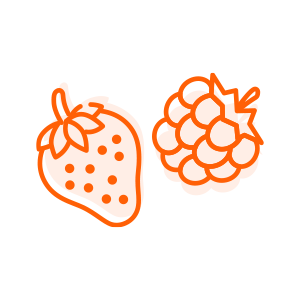
Does eating berries have a healing effect?
The consumption of berries is perfectly safe, but the fact that some health effects have been scientifically proven does not imply that they can cure cancer if consumed regularly or excessively.
MYTH
The recommendation to consume berries, both to prevent and cure cancer, is widely spread and is one of the most recurrent pieces of advice when talking about nutrition and cancer prevention or treatment.
RECOMMENDATION
Including berries as part of our diet is completely safe in and healthy due to its antioxidant properties. The recommended fruit intake during treatment indicates three pieces or portions of fresh fruit (including berries) daily and as varied as possible, as each fruit has different properties that are beneficial to our health. The best way to take advantage of the properties of fruit is to consume local and seasonal fruit.
EVIDENCE
Berries (raspberries, blueberries, blackberries, blackcurrants, gooseberries, strawberries, etc.) are small fruits, rich in polyphenols and high in antioxidants. Although current research shows promising results, the US Food and Drug Administration (FDA) indicates that there is insufficient evidence to demonstrate the effectiveness of these compounds in the treatment and prevention of cancer. Nevertheless, amongst the functions attributed to berries are the ability to selectively block proteins that develop cancer, to interfere with the formation of new blood vessels near tumours and their progression, antioxidant capacity (scavenging off free radicals responsible for premature ageing) and the ability to develop mechanisms that induce apoptosis (death) of tumour cells. All evidence indicates that eating berries has a beneficial effect, but this research has so far only provided results at the laboratory level.
Scientific articles
- Aune D. Plant foods, antioxidant biomarkers, and the risk of cardiovascular disease, cancer, and mortality: a review of the evidence. Adv Nutr. 2019; 10 (Suppl 4).
- Miller K, Feucht W, Schmid M. Bioactive compounds of strawberry and blueberry and their potential health effects based on human intervention studies: a brief overview. Nutrients. 2019; 11(7): 1510.
- Wang S, Zhu F, Meckling KA, Marcone MF. Antioxidant capacity of food mixtures is not correlated with their antiproliferative activity against MCF-7 breast cancer cells. J Med Food. 2013; 16(12): 1138-45.
- Felgus-Lavefve L, Howard L, Adams SH, Baum JI. The Effects of Blueberry Phytochemicals on Cell Models of Inflammation and Oxidative Stress. Adv Nutr. 2022 Aug 1;13(4):1279-1309. doi: 10.1093/advances/nmab137. PMID: 34791023; PMCID: PMC9340979.
- Baby B, Antony P, Vijayan R. Antioxidant and anticancer properties of berries. Crit Rev Food Sci Nutr. 2018;58(15):2491-2507. doi: 10.1080/10408398.2017.1329198. Epub 2017 Aug 14. PMID: 28609132.
Books
- Bélibeau R, Gingras D. Recetas con los alimentos contra el cáncer. 1.ª ed. Barcelona: Integral; 2010.
- Bolch A, Cassileth B, Holmes M, Thomson C. Eating well, staying well during and after cancer. 1.ª ed. EUA: American Cancer Society; 2004.
- La Mantia J, Berinstein N. The essential cancer treatment nutrition guide & cookbook. 1.ª ed. Canadá: Robert Rose; 2012.
Last updated: July 2023

Can drinking green tea help cure cancer?
In order to verify that green tea consumption, due to its high antioxidant power, has the capacity to reduce the risk of developing cancer or to exert a curative effect, further studies on humans are still needed.
MYTH
In recent years, much has been said and written about the health benefits of green tea, including that regular consumption can prevent cancer and help to cure it.
RECOMMENDATION
Drinking green tea is a good way to increase fluid intake and promote a good level of hydration, which is essential for a person undergoing cancer treatment. It will also provide antioxidants with beneficial health effects. High consumption of green tea (more than two cups a day) could lead to interactions with some of the drugs used in during treatment and you should consult your oncologist. Green tea contains theine, which has stimulant properties and is therefore not recommended to drink before going to bed or if you have insomnia.
EVIDENCE
Green tea contains a high proportion of polyphenols, such as epigallocatechin-3-gallate (EGCG), which is mainly responsible for its positive effects. Scientific laboratory and animal studies have shown it to be a strong antioxidant with the in vitro capacity to reduce the risk of developing certain types of cancer, inhibit tumour cells, induce tumour cell apoptosis, and reduce angiogenesis. However, these effects need to be tested in human clinical studies. Because different types are available on the market and different people prepare them differently, their function is conditioned by different factors and a lot more information is needed to establish definite recommendations.
Scientific articles
- Filippini T, Malavolti M, Borrelli F, et al. Green tea (Camellia sinensis) for the prevention of cancer. Cochrane Database Syst Rev. 2020; 3(3): CD005004.
- Green CJ, de Dauwe P, Boyle T, Tabatabaei SM, Fritschi L, Heyworth JS. Tea, coffee, and milk consumption and colorectal cancer risk. J Epidemiol. 2014; 24(2): 146-53.
- Braakhuis AJ, Campion P, Bishop KS. Reducing Breast Cancer Recurrence: The Role of Dietary Polyphenolics. Nutrients _2016; 8(9):547.
- Agarwal A, Kansal V, Farooqi H, Prasad R, Singh VK. Epigallocatechin Gallate (EGCG), an Active Phenolic Compound of Green Tea, Inhibits Tumor Growth of Head and Neck Cancer Cells by Targeting DNA Hypermethylation. Biomedicinas . 2023; 11(3):789.
- Miyata Y, Shida Y, Hakariya T, Sakai H. Anti-cancer effects of green tea polyphenols against prostate cancer. Molecules. 2019; 24(1): 193.
- Yang CS, Wang X. Green tea and cancer prevention. Nutr Cancer. 2010; 62(7): 931-7.
Websites
- Cancer [internet]. EUA: National Cancer Institute; 2010 [cited March 2015]. Tea and Cancer Prevention: Strengths and Limits of the Evidence. Available from: http://www.cancer.gov/cancertopics/factsheet/prevention/tea
- Cancer Research UK [internet]. Londres: Cancer Research UK; 2015 [cited March 2015]. Green tea (Chinese tea). Available from: https://www.cancerresearchuk.org/about-cancer/treatment/complementary-alternative-therapies/individual-therapies/green-tea?
- Memorial Sloan Ketting Cancer center [internet]. Nueva York: Memorial Sloan Ketting Cancer center; 2014 [cited March2015]. Green Tea. Available from: http://www.mskcc.org/cancer-care/herb/green-tea
Last updated: July 2023
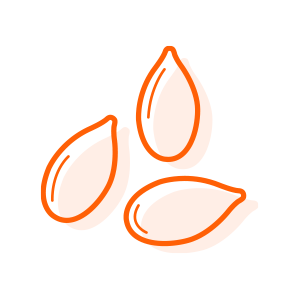
Can eating flaxseeds cure cancer?
The effects of flaxseed consumption on cancer treatment or prevention of cancer are not proven.
MYTH
Some people undergoing treatment include flax seeds in their diet because they have heard or read about their possible benefits. There is a wealth of information online and from various sources which claim that eating flaxseed can prevent and cure cancer, mainly prostate, lung, colon, rectal or breast cancer.
RECOMMENDATION
Although the effects of flaxseed on cancer are not proven, a moderate consumption (one to three tablespoons per day) benefits the circulatory system. Integrating flaxseed into a balanced diet is safe and entirely optional but is not a medical recommendation. If consumed, they can be milled or blended to facilitate the absorption of fatty acids or left whole in case of constipation. If you want to take more, consult your oncologist, as excessive consumption may lead to drug interactions. In the case of hormone-dependent breast cancer, their use should also be reported because of their estrogenic capacity.
EVIDENCE
Scientific research suggests that flaxseeds may reduce the risk of cancer through the lignans (polyphenolic compounds with phytoestrogenic capacity), linolenic acid, or omega-3 fatty acids that they contain. Animal studies conclude that lignans act as antioxidants and that flaxseed reduces the formation, growth or spread of some types of cancer. Studies in humans are very limited and there is not enough scientific evidence at present to recommend flaxseeds as protective or as therapy during treatment.
Scientific articles
- De Silva SF, Alcorn J. Flaxseed Lignans as Important Dietary Polyphenols for Cancer Prevention and Treatment: Chemistry, Pharmacokinetics, and Molecular Targets. Pharmaceuticals (Basel). 2019; 12(2): 68.
- Lowcock EC, Cotterchio M, Boucher BA. Consumption of flaxseed, a rich source of lignans, is associated with reduced breast cancer risk. Cancer Causes Control. 2013; 24(4): 813-6.
- Parikh M, Maddaford TG, Austria JA, Aliani M, Netticadan T, Pierce GN. Dietary Flaxseed as a Strategy for Improving Human Health. Nutrients. 2019; 11(5): 1171.
- Nowak W, Jeziorek M. The Role of Flaxseed in Improving Human Health. Healthcare 2023, Vol 11, Page 395 [Internet]. 2023 Jan 30 [cited 2023 Mar 31];11(3):395.
- Shim YY, Kim JH, Cho JY, Reaney MJT. Health benefits of flaxseed and its peptides (linusorbs). Crit Rev Food Sci Nutr [Internet]. 2022 OCT 4:1-20
- Tannous S, Haykal T, Dhaini J, Hodroj MH, Rizk S. NC-ND license The anti-cancer effect of flaxseed lignan derivatives on different acute myeloid leukemia cancer cells. 2020
Websites
- Memorial Sloan Kettering Cancer Center [internet]. Nueva York: Memorial Sloan Kettering Cancer Center; 2014 [cited March 2015]. Flaxseed. Available from: http://www.mskcc.org/cancer-care/herb/flaxseed
Last updated: July 2023

Does turmeric have beneficial effects during treatment?
There is currently insufficient scientific evidence to confirm that its consumption during treatment has beneficial effects on the disease, as clinical trials and dose-effect studies are lacking.
MYTH
In recent years, curcumin in turmeric has been described as one of the components with the most possible beneficial effects in preventing and treating cancer. This has led to an increasing number of sources recommending its consumption during treatment.
RECOMMENDATION
Turmeric is completely safe to use as part of a balanced diet. Its traditional use in dishes, like that of other spices, would not have any harmful effects. In the case of high doses, the oncologist should be consulted, as it may interfere with certain drugs used in chemotherapy treatment.
EVIDENCE
Turmeric is a spice whose rhizomes contain curcumin, which is thought to have potential anti-cancer effects. Multiple laboratories and animal studies have shown that it has anti-tumour and apoptosis activity in a broad spectrum of cells. Studies have also shown it to have antioxidant properties (preventing angiogenesis, inhibiting cancer cells, and slowing the growth and spread of cancer) and anti-inflammatory effects on cancer cells. Human clinical trials on these effects of curcumin are in early stages, and it remains uncertain whether it will be introduced into cancer treatment.
Scientific articles
- Frenkel M, Sierpina V. The use of dietary supplements in oncology. Curr Oncol Rep. 2014; 16(11): 411.
- Giordano A, Tommonaro G. Curcumin and Cancer. Nutrients. 2019; 11(10): 2376.
- Liu D, Chen Z. The Effect of Curcumin on Breast Cancer Cells. J Breast Cancer. 2013; 16(2): 133-137.
- Pricci M, Girardi B, Giorgio F, Losurdo G, Ierardi E, Di Leo A. Curcumin and Colorectal Cancer: From Basic to Clinical Evidences. Int J Mol Sci. 2020; 21(7): 2364.
- Tan BL, Norhaizan ME. Curcumin Combination Chemotherapy: The Implication and Efficacy in Cancer. Molecules. 2019; 24(14): 2527.
- Tuorkey MJ. Curcumin a potent cancer preventive agent: Mechanisms of cancer cell killing. Interv Med Appl Sci. 2014; 6(4): 139-46.
- Zhang X, Zhu L, Wang X, Zhang H, Wang L, Xia L. Basic research on curcumin in cervical cancer: Progress and perspectives. Biomedicine & Pharmacotherapy. 2023Mar23;162:114590.
- Zheng J, Zhou Y, Li Y, Xu D-P, Li S, Li H-B. Spices for prevention and treatment of cancers. Nutrients. 2016;8(8):495.
Websites
- Cancer Research UK [internet]. Londres: Cancer Research UK; 2014 [cited March 2015]. Tumeric and cancer. Available from: https://www.cancerresearchuk.org/about-cancer/treatment/complementary-alternative-therapies/individual-therapies/turmeric
- Memorial Sloan Ketting Cancer Center [internet]. Nueva York: Memorial Sloan Ketting Cancer Center; 2012 [cited March 2015]. Turmeric. Available from: http://www.mskcc.org/cancer-care/herb/turmeric
Last updated: July 2023

Are alternative diets advisable and/or safe?
As of today, there is no type of restrictive diet that has clear scientific evidence for its use in patients during cancer treatment. In fact, many of these diets can be potentially very dangerous during treatment.
MYTH
Social media, mass media, and word of mouth are filled with messages and recommendations about 'miracle' alternative diets that claim to cure cancer, making it a widely practiced approach among individuals affected by cancer. Typically, these recommendations are made without the guidance of the oncology treatment team, potentially jeopardizing the patient's clinical and nutritional status. Similarly, the prescription or restriction of specific foods during cancer treatment should come from the treating medical team or the designated dietitian/nutritionist. Some of the most prevalent diets include the alkaline diet, blood type diet, macrobiotic diet, vegan diet, ketogenic diet, and intermittent fasting.
RECOMMENDATION
Adequate nutritional status is fundamental to cope with the disease and its treatments. The diagnosis of cancer does not necessitate a change in diet. In the case of unhealthy dietary habits, it is recommended to maintain a varied, balanced, and healthy diet that meets nutritional needs during this period. If you were following a vegan, macrobiotic, or vegetarian diet before the oncological diagnosis, you can continue doing so under dietary-nutritional supervision to ensure complete nutritional intake, but you should not make the change if it was not the case. Always consult with your designated medical team before following any diet that has not been prescribed within this team or hospital setting.
EVIDENCE
There is limited evidence regarding the benefits of alternative diets during cancer treatment. The use of ketogenic diets and intermittent fasting (in various modalities) has been more extensively studied. However, as of today, there is not enough scientific evidence to recommend any of them for cancer patients due to potential adverse effects. The use of other restrictive diets in many cases is based on theoretical reasoning, anecdotal cases, or unverifiable sources, lacking robust scientific evidence to support routine use. The existing evidence on vegan, vegetarian, macrobiotic, or plant-based diets is focused on cancer prevention, and very few studies have been conducted during the oncological process.
Scientific articles
- Zhao H Jin H, Xian J et al. Effect of ketogenic diets on body composition and metabolic parameters of cancer patients: a systematic review and meta-analysis. Nutrients, 2022 Oct 8; 14(19):4192
- Ferro Y, Maurotti S, Tarsitano MG et al. Therapeutic fasting in reducing chemotherapy side effects in cancer patients: a systematic review and meta-analysis. Nutrients 2023 Jun 8; 15(12):2666
- Muscaritoli M, Arends J, Bachmann P et al. ESPEN practical guideline: Clinical Nutrition in cancer. Clin Nutr 2021; 40:2898-2913
Websites
- Alhamzah SA, Gatar OM, Alruwaili NW. Effects of ketogenic diet on oxidative stress and cancer: A literature review. Advances in Cancer Biology - Metastasis. 2023 Jul 1;7.
- Shah UA, Iyengar NM. Plant-Based and Ketogenic Diets As Diverging Paths to Address Cancer: A Review. JAMA Oncol [Internet]. 2022 Aug 1 [cited 2023 Mar 31];8(8):1201–8. Available from: https://jamanetwork-com.sire.ub.edu/journals/jamaoncology/fullarticle/2794147
Internet monographs
- American Cancer Society. Nutrición para la persona con cáncer. EUA: American Cancer Society; 2014 cited March 2015]. Available from: http://www.cancer.org/acs/groups/cid/documents/webcontent/002904-pdf.pdf
Last updated: July 2023
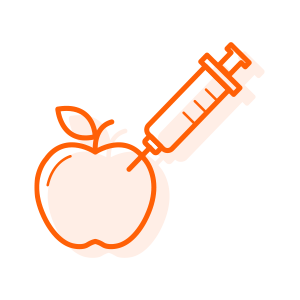
Are genetically modified foods linked to tumour processes?
No. There are no scientific studies that have linked genetically modified foods to oncological processes.
MYTH
There is a false belief that genetically modified or transgenic foods are linked to tumour processes. It is believed that by modifying the genes of the food, the genes of the people who eat it are also modified, giving place to mutations and the development of possible tumours.
RECOMMENDATION
The recommendation to follow a healthy and balanced diet based on the Mediterranean diet can be made whilst including genetically modified foods, as the European Union guarantees their safety. In addition, regulations make it compulsory to label all genetically modified foods and the ingredients containing or produced from genetically modified organisms (GMOs). Thus, whether to include them in your diet or not is a personal choice.
EVIDENCE
Genetically modified foods are those whose genetic material has been modified using modern genetic engineering techniques to give them a specific property, for example, to improve their nutritional characteristics, improve population nutritional deficiencies, enhance their growth, make them more efficient, or offer crop resistance to diseases or pests, amongst others. The EU guarantees that these foods are safe to eat before they are commercialized by checking that they do not cause allergies, do not transfer genetic material, are not resistant to antibiotics and that there are no significant nutritional changes. To date, there are no reliable scientific studies or proven evidence linking their consumption with the appearance of tumours or interference during cancer treatment.
Scientific articles
- Touyz LZ. Genetically modified foods, cancer, and diet: myths and reality. Curr Oncol. 2013; 20(2).
- Rodríguez AV, Rodríguez-Oramas C, Velázquez ES, de la Torre AH, Armendáriz CR, Iruzubieta CC. Myths and Realities about Genetically Modified Food: A Risk-Benefit Analysis. Vol. 12, Applied Sciences (Switzerland). MDPI; 2022.
Websites
- Cancer Research UK. [internet]. United Kingdom; 2019 [cited July 2020]. Do genetically modified food cause cancer? Available from: https://www.cancerresearchuk.org/about-cancer/causes-of-cancer/cancer-controversies/do-genetically-modified-foods-cause-cancer
- Asociación Española contra el Cáncer (AECC) [internet]. Madrid: Asociación Española contra el Cáncer; 2019 [cited July 2020]. Creencias erróneas, mitos y pseudoterapias sobre el cáncer. Available from: https://www.aecc.es/sites/default/files/ebooks/GuiaCreenciasErroneas-2019_INTERACTIVO.pdf
- World Health Organizationn. WHO [internet] 2014. Food, genetically modified. Available from: https://www.who.int/news-room/questions-and-answers/item/food-genetically-modified
- Agencia Catalana de Seguridad Alimentaria (ACSA) [internet]. Barcelona; 2006 [cited July 2020]. Alimentos modificados genéticamente. Available from: https://acsa.gencat.cat/web/.content/_Publicacions/Informacio-temes-especifics/OMG-Castella.pdf
- Agencia Española de Seguridad Alimentaria y Nutrición (AESAN) [internet]. Madrid, 2006 [cited July 2020]. Organismos modificados genéticamente. Available from: https://www.aesan.gob.es/AECOSAN/web/laboratorios/subdetalle/organismos_modificados.htm
- Medical News Today [internet]. U.S, 2022. Genetically modified food: What are the pros and cons? Available from: https://www.medicalnewstoday.com/articles/324576
Last updated: July 2023
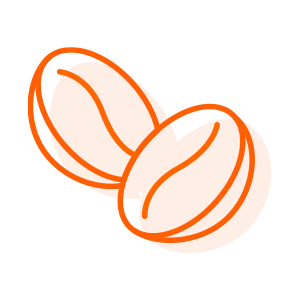
Is drinking coffee during treatment beneficial?
Moderate coffee consumption during cancer treatment is safe, although its intake may or may not be recommended depending on the symptoms or side effects that arise. For this reason, it is always advisable to consult your medical team.
MYTH
On the one hand, years ago, some scientific studies linked coffee intake to an increased risk of cancer, especially pancreatic cancer. Roasted coffee also generates acrylamide, a highly controversial chemical substance. On the other hand, more recent studies claim that coffee consumption may be associated with a lower incidence of developing some types of cancer and provide other beneficial health effects. These two facts have raised questions and doubts amongst people undergoing cancer treatment.
RECOMMENDATION
There is insufficient evidence to recommend the exclusion or ingestion of coffee during treatment, so its consumption is optional. The current recommendation is that moderate coffee consumption can be part of a balanced diet. The EFSA (European Food Safety Agency) advises not to exceed an intake of 400 mg of caffeine per day (a dose which, spread over the day, has no harmful effects). It is important to keep in mind that caffeine content depends on the type of coffee or dilution (amongst other things) and that on average, a cup of espresso contains about 80 mg of caffeine. Therefore, it is best not to drink more than four cups of coffee a day. A high caffeine intake can interfere with sleep patterns, cause digestive problems, or lead to imbalances in blood pressure.
EVIDENCE
Recent and better-designed studies than the initial ones have not found a connection between coffee and the onset of cancer. Even the World Health Organization (WHO) has removed coffee as a possible carcinogen, and its consumption is currently linked to multiple benefits for the immune system (by regulating inflammation) and a lower risk of developing certain types of cancer. This effect is attributed to its phenolic compounds with antioxidant properties and the ability to prevent oxidative damage to cellular components that contribute to the pathogenesis of inflammation, cancer, and neurodegenerative diseases. However, the evidence in this regard is inconclusive, and the results have a very low level of certainty, making it uncertain or doubtful to claim that coffee is beneficial to health.
Scientific articles
- Alicandro G, Tavani A, La Vecchia C. Coffee and cancer risk: a summary overview. Eur J Cancer Prev. 2017 Sep; 26(5): 424-432.
- Loftfield E, Cornelis MC, Caporaso N, Yu K, Sinha R, Freedman N. Association of Coffee Drinking With Mortality by Genetic Variation in Caffeine Metabolism: Findings From the UK Biobank. JAMA Intern Med. 2018; 178(8): 1086–1097.
- Torres-Collado L, Compañ-Gabucio LM, González-Palacios S, Notario-Barandiaran L, Oncina-Cánovas A, Vioque J, García-de la Hera M. Coffee Consumption and All-Cause, Cardiovascular, and Cancer Mortality in an Adult Mediterranean Population. Nutrients. 2021; 13(4): 1241.
- Yu X, Bao Z, Zou J, Dong J. Coffee consumption and risk of cancers: a meta-analysis of cohort studies. BMC Cancer. 2011; 11: 96.
- Barrea L, Pugliese G, Frias-Toral E, El Ghoch M, Castellucci B, Chapela SP, Carignano MLA, Laudisio D, Savastano S, Colao A, Muscogiuri G. Coffee consumption, health benefits and side effects: a narrative review and update for dietitians and nutritionists. Crit Rev Food Sci Nutr. 2023;63(9):1238-1261. doi: 10.1080/10408398.2021.1963207. Epub 2021 Aug 28. PMID: 34455881.
- Murai T, Matsuda S. The Chemopreventive Effects of Chlorogenic Acids, Phenolic Compounds in Coffee, against Inflammation, Cancer, and Neurological Diseases. Molecules . 2023; 28(5):2381.
- Safe S, Kothari J, Hailemariam A, Upadhyay S, Davidson LA, Chapkin RS. Health Benefits of Coffee Consumption for Cancer and Other Diseases and Mechanisms of Action . International Journal of Molecular Sciences. 2023; 24(3):2706.
Websites
- Asociación Española contra el Cáncer (AECC) [internet]. Madrid: Asociación Española contra el Cáncer; 2019 [cited July 2020]. Creencias erróneas, mitos y pseudoterapias sobre el cáncer. Available from: https://www.aecc.es/sites/default/files/ebooks/GuiaCreenciasErroneas-2019_INTERACTIVO.pdf
- Harvard Health Publishing [internet]. EUA; 2017 [cited July 2021]. The latest scoop on the health benefits of coffee. Available from: https://www.health.harvard.edu/blog/the-latest-scoop-on-the-health-benefits-of-coffee-2017092512429
- Harvard Health Publishing [internet]. EUA; 2018 [cited July 2021]. Health benefits of coffee and a proposed warning label. Available from: https://www.health.harvard.edu/blog/health-benefits-of-coffee-and-a-proposed-warning-label-2018072514319
- American Cancer Society [internet]. EUA; 2018 [cited July 2021]. ¿Puede el café reducir el riesgo de cáncer? Available from: https://www.cancer.org/es/noticias-recientes/puede-el-cafe-reducir-el-riesgo-de-cancer.html
- European Food Safety Authority (EFSA). Unión Europea; 2017 [cited July 2021]. Cafeína. Available from: https://www.efsa.europa.eu/es/topics/topic/caffeine
- Nutrimedia: https://www.upf.edu/web/nutrimedia/-/-el-consumo-de-cafe-es-perjudicial-o-beneficioso-para-la-salud-#.Ye6WxP7MJ1s
Last updated: July 2023
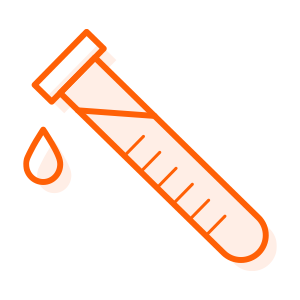
Are food additives harmful during cancer treatment?
There is currently no evidence linking an intake of food additives (within the acceptable daily intake) approved by the European Food Safety Authority with an increased risk of developing cancer or interactions during treatment.
MYTH
There are still many reports today linking food additives to multiple adverse health effects such as allergies, intestinal dysbiosis, and increased risk of developing cancer or interactions with cancer treatments, leading to uncertainty about their safety and causing many people to avoid them.
RECOMMENDATION
The European Food Safety Authority (EFSA) reviews the safety of food additives regularly with a very thorough evaluation, the last of which was completed in 2020 with later revaluations in some specific cases such aspartame (see sweeteners myth). The letter E indicates that it has been approved and is safe for human consumption. Therefore, foods containing food additives can be part of a healthy and balanced diet. However, a healthy diet is one based on fresh, local and seasonal foods, with little or no processing, and above all without ultra-processed foods, so the intake of additives should be very low.
EVIDENCE
Food additives are substances intentionally added to food to perform technological functions: to give colour, to improve texture, to sweeten, to help preserve, amongst many others. There are many different types and additives should always appear in the list of ingredients on the packaging or container indicating the function they perform in that specific product. The scientific evidence on the negative effects of food additives is extensive, but often not very well documented or rigorous. This is why EFSA evaluates food additives exhaustively and establishes an acceptable daily intake for each additive (an estimate of the amount of substance that a person can ingest every day for a lifetime without it being a substantial risk to their health).
Websites
- Asociación Española contra el Cáncer (AECC) [internet]. Madrid: Asociación Española contra el Cáncer; 2019 [cited July 2020]. Creencias erróneas, mitos y pseudoterapias sobre el cáncer. Available from: https://www.aecc.es/sites/default/files/ebooks/GuiaCreenciasErroneas-2019_INTERACTIVO.pdf
- Agencia Española de Seguridad Alimentaria y Nutrición (AESAN) [internet]. Madrid 2021 [cited July 2021]. Aditivos alimentarios. Available from: https://www.aesan.gob.es/AECOSAN/web/seguridad_alimentaria/subdetalle/aditivos_alimentarios.htm
- Organización Mundial de la Salud (OMS) [internet] 2018 [cited July 2021]. Aditivos alimentarios. Available from: https://www.who.int/es/news-room/fact-sheets/detail/food-additives
- European Food Safethy Authority (EFSA) [internet] [cited July 2021]. Food improvements agent Applications regulations and guidance. Available from: https://www.efsa.europa.eu/en/applications/food-improvement-agents/regulationsandguidance
